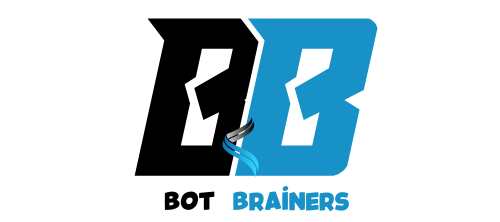Accounting software is essential for modern businesses to manage finances effectively. Among the top contenders in this space, Xero vs QuickBooks has become a highly debated topic. Both platforms offer powerful tools for accounting, but which one is right for your business?
This detailed guide dives into Xero accounting software vs QuickBooks, analyzing their features, pricing, usability, and more. By the end, you’ll be equipped to decide whether is the better choice for your needs.
Overview of Xero and QuickBooks
Before we compare, let’s get to know each platform.
What is Xero?
Xero is a cloud-based accounting software known for its user-friendly interface and robust features. Designed for small to medium-sized businesses, Xero offers tools for invoicing, expense tracking, inventory management, and bank reconciliation.
What is QuickBooks?
QuickBooks, developed by Intuit, is one of the most popular accounting platforms globally. With its strong reputation and extensive feature set, QuickBooks caters to businesses of all sizes. It offers solutions like QuickBooks Online (QBO) for cloud-based users and QuickBooks Desktop for traditionalists.
Xero vs QuickBooks: Key Features Comparison
Let’s compare the core features of both platforms to see how they measure up.
1. User Interface and Ease of Use
Xero: Offers an intuitive, clean interface. It’s easy for non-accountants to navigate, making it ideal for small business owners.
QuickBooks: While powerful, its interface can be more complex. Users often report a steeper learning curve, especially for beginners.
Winner: Xero for simplicity.
2. Invoicing and Payments
Xero: Customizable invoices with branding options. Supports recurring invoices and integrates with multiple payment gateways.
QuickBooks: Equally robust invoicing features, including payment reminders and real-time payment tracking.
Winner: Tie – Both excel in this area.
3. Expense Tracking
Xero: Automatic expense categorization and real-time expense tracking through bank feed synchronization.
QuickBooks: Advanced categorization, receipt capture via the QuickBooks mobile app, and better reporting tools.
Winner: QuickBooks for more detailed reporting.
4. Inventory Management
Xero: Built-in inventory tracking that works well for small businesses with basic needs.
QuickBooks: Advanced inventory tools available in higher-tier plans, making it suitable for businesses with complex inventory systems.
Winner: QuickBooks for larger businesses; Xero for simplicity.
5. Reporting and Analytics
Xero: Offers over 50 standard reports, including financial performance, cash flow, and profit and loss.
QuickBooks: Over 100 customizable reports, with advanced tools in QuickBooks Online Advanced or Desktop versions.
Winner: QuickBooks for versatility.
Pricing Comparison: QuickBooks vs Xero
Price often plays a significant role in choosing accounting software. Here’s how they compare:
Xero Pricing
- Starter Plan: $25/month (limited transactions).
- Standard Plan: $40/month (ideal for small businesses).
- Premium Plan: $54/month (supports multiple currencies).
QuickBooks Online Pricing
- Simple Start: $30/month (single user).
- Essentials: $55/month (up to 3 users).
- Plus: $85/month (up to 5 users).
- Advanced: $200/month (25+ users and premium features).
Winner: Xero offers lower pricing tiers but with transaction limits, while QuickBooks provides more options for scaling businesses.
Integrations and Add-Ons
Xero
Xero boasts over 1,000 integrations with tools like HubSpot, Stripe, and Shopify. It’s particularly popular with e-commerce businesses.
QuickBooks
QuickBooks integrates with over 650 apps, including PayPal, Gusto, and Mailchimp. It also connects seamlessly with Intuit’s ecosystem, such as TurboTax.
Winner: Xero for wider integration options.
Customer Support and Community
Xero Support
24/7 customer support via email and chat.
An active community forum and extensive online resources.
QuickBooks Support
Offers phone and chat support during business hours.
Priority support is available with premium plans.
Winner: Xero for round-the-clock availability.
Mobile App Performance
Both platforms offer mobile apps for on-the-go accounting.
Xero App: Clean, user-friendly interface. Limited offline functionality.
QuickBooks App: More robust features, including offline capabilities for tracking mileage and capturing receipts.
Winner: QuickBooks for offline functionality
Xero vs QuickBooks: Best For…
Xero: Ideal for small businesses, freelancers, and startups looking for affordability and simplicity.
QuickBooks: Better suited for larger businesses and those requiring advanced inventory, payroll, or reporting tools.
Is Xero Better Than QuickBooks?
The answer depends on your business needs. If you prioritize simplicity, affordability, and integrations, Xero might be the better choice. For businesses requiring advanced features, scalability, and extensive reporting tools, QuickBooks takes the lead.
QuickBooks Online vs Xero: Which One Should You Choose?
Choose Xero If:
You run a small business with straightforward accounting needs.
You need a platform with excellent integration options.
Your budget is limited but you still want robust features.
Choose QuickBooks If:
You need advanced reporting and inventory tools.
Your business is scaling rapidly, and you need premium features.
You value offline functionality and a more robust mobile app.
Future Trends in Accounting Software
Both Xero and QuickBooks are evolving to stay ahead in the accounting software industry. Here’s what to expect:
- AI Integration: Automating data entry and generating financial insights.
- Enhanced Security: Improved encryption and fraud detection.
- Blockchain Integration: More secure and transparent transactions.
Detailed Comparison: Xero vs QuickBooks for Specific Business Needs
Different types of businesses have unique requirements. Here’s how Xero and QuickBooks cater to specific industries:
For Freelancers and Sole Proprietors
- Xero: Offers an affordable starter plan, ideal for managing invoices, expenses, and basic accounting needs. Its intuitive interface makes it beginner-friendly.
- QuickBooks: The “Simple Start” plan is tailored for individuals, with tools for tax preparation, invoice creation, and tracking income and expenses.
Verdict: Xero is better for freelancers on a tight budget, while QuickBooks offers slightly more robust features for self-employed individuals.
For Small Businesses
Xero: The “Standard” plan supports unlimited invoices, bills, and bank transactions, making it suitable for small businesses with straightforward accounting needs.
QuickBooks: The “Essentials” and “Plus” plans allow for multiple users and include advanced features like time tracking and inventory management.
Verdict: QuickBooks offers more functionality for growing small businesses, but Xero remains a cost-effective solution for those with simpler needs.
For Medium-Sized and Growing Businesses
Xero: While Xero offers a premium plan with multi-currency support, it lacks some advanced features required by larger businesses.
QuickBooks: The “Advanced” plan includes features like batch invoicing, advanced reporting, and priority customer support, making it a better choice for scaling operations.
Verdict: QuickBooks provides the scalability and advanced tools needed by medium-sized enterprises.
Payroll Integration
Xero
Xero provides payroll functionality as an add-on, allowing businesses to manage employee wages, tax filings, and benefits. It integrates well with third-party payroll services.
QuickBooks
QuickBooks includes built-in payroll options, which are seamless and powerful. It offers automatic payroll tax calculations, direct deposits, and year-end tax preparation services.
Verdict: QuickBooks leads in payroll capabilities due to its built-in tools and ease of use.
Customer Reviews and Ratings
Xero User Feedback
Pros: Users appreciate the simplicity, integrations, and affordable pricing.
Cons: Some users report limited features for complex accounting needs.
QuickBooks User Feedback
Pros: Highly praised for its advanced features, detailed reporting, and scalability.
Cons: The learning curve and higher pricing tiers can be a drawback for small businesses.
Case Studies: Real-World Use Cases
Case Study: Xero in Action
A small e-commerce business switched to Xero for its seamless integration with Shopify. The automatic bank feed synchronization and real-time inventory tracking significantly reduced manual data entry, saving time and improving accuracy.
Case Study: QuickBooks in Action
A medium-sized construction firm opted for QuickBooks to handle complex payroll and advanced job costing. The customizable reporting tools allowed the firm to better analyze project profitability, improving financial decision-making.
Pros and Cons of Xero and QuickBooks
| Feature | Xero | QuickBooks |
| Ease of Use | User-friendly, intuitive design | More powerful but slightly complex |
| Pricing | Affordable, transparent tiers | Higher cost for advanced plans |
| Mobile App | Simplistic, limited offline features | Robust, includes offline functionality |
| Inventory Management | Basic tools included | Advanced features for larger businesses |
| Scalability | Suitable for small to medium businesses | Excellent for growing enterprises |
What Sets Xero and QuickBooks Apart?
Xero’s Unique Selling Points
Simpler, cleaner interface suitable for beginners.
Better suited for businesses needing strong integration with third-party apps.
Lower pricing tiers compared to QuickBooks.
QuickBooks’ Unique Selling Points
Industry-leading features like advanced reporting, inventory, and payroll.
A comprehensive suite of plans for businesses of all sizes.
Integration with the Intuit ecosystem (e.g., TurboTax, Mint).
Tips for Choosing Between Xero and QuickBooks
- Evaluate Your Business Size: Small businesses with simple needs may find Xero sufficient, while growing enterprises may need QuickBooks’ advanced features.
- Consider Your Budget: If cost is a concern, compare pricing plans carefully. Xero’s plans are generally more affordable.
- Test Free Trials: Both platforms offer free trials, allowing you to explore features before committing.
- Check Integration Needs: If your business relies on specific tools, ensure the accounting software integrates seamlessly.
Conclusion: Xero vs QuickBooks – Which Reigns Supreme?
When it comes to Xero vs QuickBooks, the best choice depends on your business size, needs, and budget. While Xero shines with its simplicity, affordability, and extensive integrations, QuickBooks offers unmatched features for larger businesses, including advanced reporting and inventory management.
If you’re a small business owner or freelancer looking for an intuitive platform, Xero might be the right fit. On the other hand, QuickBooks is better suited for growing enterprises that need scalability and premium tools. Evaluate your priorities, test both platforms and choose the one that aligns with your goals.


